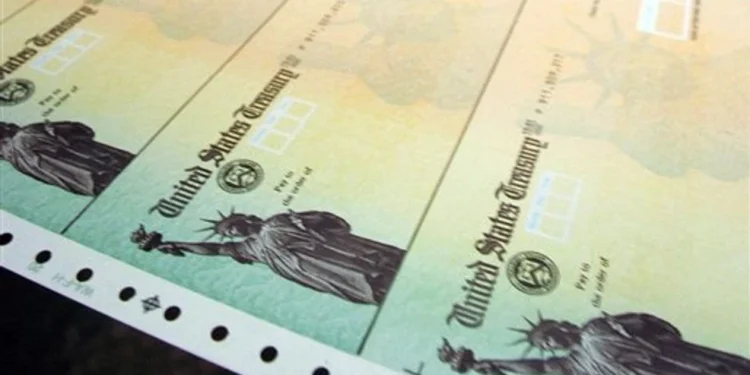The U.S. Treasury will cease issuing paper checks for most federal benefits by September 30th, mandating electronic payments for Social Security, VA disbursements, and tax refunds.
President Trump’s March executive order directed the Treasury to eliminate paper checks for “all Federal disbursements” except for individuals lacking access to banking services. The administration cited reductions in “unnecessary costs; delays; and risk of fraud, lost payments, theft and inefficiencies” as justification.
The transition offers significant cost savings, with paper checks costing approximately 50 cents to issue compared to 15 cents for Electronic Funds Transfers. This difference could save the federal government millions annually across its extensive benefits programmes.
Most Americans have already adopted electronic payments voluntarily. Fewer than one percent of Social Security beneficiaries currently receive paper checks, according to the Social Security Administration, suggesting widespread acceptance of digital payment methods.
Greg McBride, chief financial analyst at Bankrate.com, highlighted security advantages: “Direct deposit eliminates the risk of mail delays, and lost, stolen, or damaged checks. It’s automatically deposited into your account, the funds are immediately available, and there’s no waiting by the mailbox.”
However, consumer advocacy groups have raised concerns about mandatory digital transitions. Six organisations, including the Consumer Federation of America and Consumer Reports, wrote to Treasury Secretary Scott Bessent arguing that “many people will never be able to use electronic payments” and urging continued paper check options.
Recipients currently receiving paper checks must enroll in direct deposit through three methods: contacting the relevant federal agency, enrolling online at GoDirect.gov, or calling the Electronic Payment Solution Center at 800-967-6857. Social Security beneficiaries can update payment information through their personal accounts.
The transition poses particular challenges for unbanked Americans, estimated at 5.6 million people according to Federal Deposit Insurance Corporation data. The government addresses this through Direct Express prepaid debit cards, which automatically receive benefit deposits and provide access to 75,000 fee-free ATMs nationwide.
The cards include certain fees, including $1.50 for transferring funds to bank accounts and charges for out-of-network ATM usage. McBride recommends traditional bank accounts over prepaid cards for those able to access conventional banking services.
The September deadline creates urgency for recipients who have delayed transitioning to electronic payments. McBride cautioned that last-minute applications could result in payment delays, particularly for Direct Express cards which require processing time.
For Seattle-area residents receiving federal benefits, the transition reflects broader digitisation trends affecting government services. The shift may particularly impact elderly recipients and those with limited technological familiarity who have relied on traditional paper check systems.
The mandatory nature of the transition highlights tensions between government efficiency goals and accessibility concerns for vulnerable populations who may struggle with digital payment systems or lack banking relationships.







